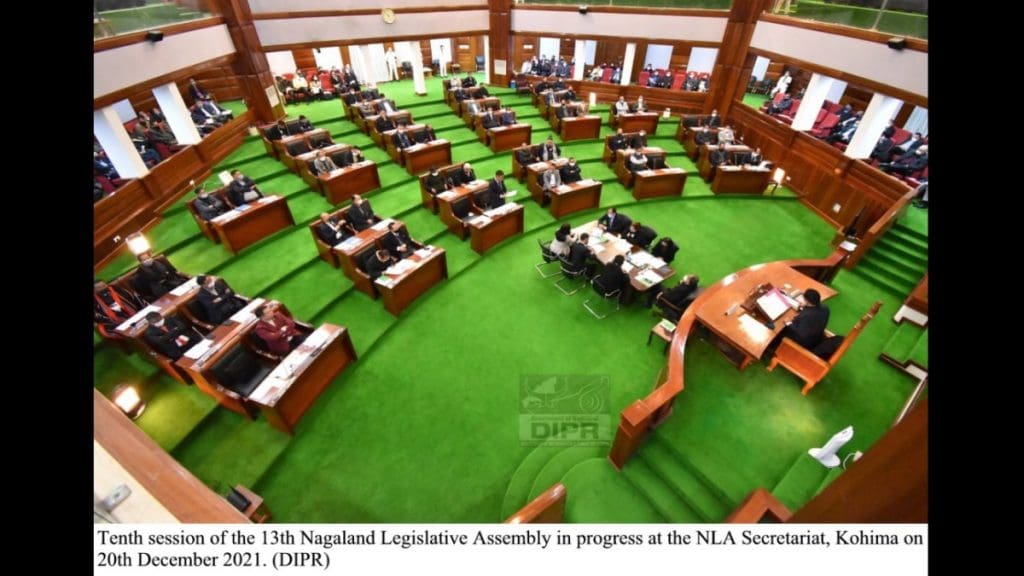
The Nagaland Assembly on Monday unanimously passed a resolution demanding that the Union government withdraws the draconian AFSPA from the North East, and especially from Nagaland.
The Nagaland government is led by the Nationalist Democratic Progressive Party, an ally of the BJP.
All legislators unanimously resolved that demand to the Government of India will be made to repeal the Armed Forces (Special Powers) Act from the region, particularly in Nagaland “so as to strengthen the ongoing efforts to find a peaceful political settlement to the Naga political issue.”
The resolution was passed weeks after the killing of 14 civilians by Indian security forces in Nagaland’s Mon district. The resolution also sought an apology from the authorities on the killings, and an assurance to provide justice.
“The Naga people have been crying out for peace and an early solution to the pending Naga political issue. It is of paramount importance that the people’s voice is heard and respected. The House, therefore, once again appeals to the negotiating parties of the Indo-Naga political dialogue to bring the talks to its logical conclusion by reaching a settlement that is honorable, inclusive and acceptable, at the earliest,” read the resolution.
The AFSPA gives armed forces deployed in internal conflicts broad powers to use lethal force and provides soldiers with effective immunity from prosecution.
Following the killings, the chief ministers of Nagaland and neighboring Meghalaya state, both allied to the Bharatiya Janata Party-led Union government, called for the repeal of AFSPA, as did opposition politicians, human rights activists, and affected residents.
The AFSPA, enacted in 1958 as a short-term measure to allow deployment of the army to counter an armed separatist movement in the Naga Hills, has now been in force for over 60 years. In addition to Nagaland, it is currently used in Manipur, Assam, and parts of Arunachal Pradesh and Jammu and Kashmir.
The AFSPA gives the armed forces wide powers to shoot to kill, make arrests on flimsy pretexts, conduct warrantless searches, and demolish structures in the name of “aiding civil power,” Human Rights Watch said.
The powers that the law extends to the armed forces come into force once an area subject to the act has been declared “disturbed” by the Union or state government. This declaration is not subject to judicial review.
Several reports of human rights groups found that equipped with these special powers, soldiers have raped, tortured, forcibly disappeared, and killed people without fear of being held accountable in these regions.
The act violates international human rights law protections, including the right to life, the right to be protected from arbitrary arrest and detention, and the right to be free from torture and cruel, inhuman, or degrading treatment. It also denies the victims and their families the right to a remedy.
Several government-appointed commissions in India have recommended repealing the law. Several United Nations human rights bodies have also called for the repeal of the law. A 2019 report on Jammu and Kashmir by the Office of the United Nations High Commissioner for Human Rights noted that the AFSPA “remains a key obstacle to accountability.”



